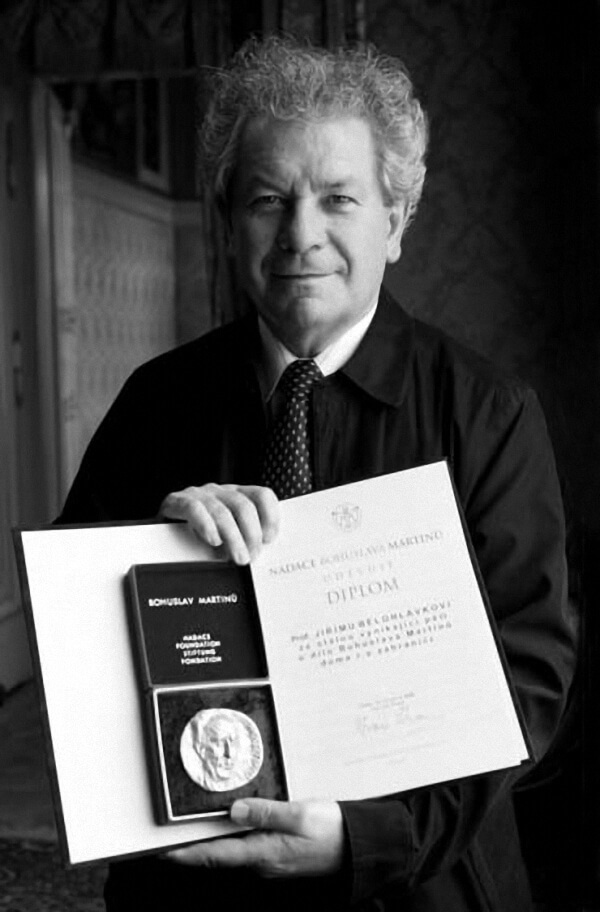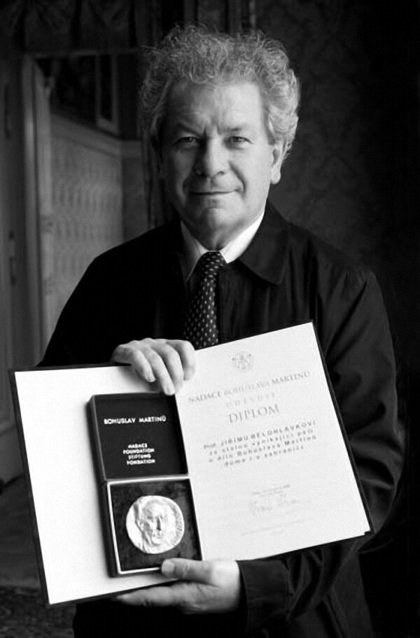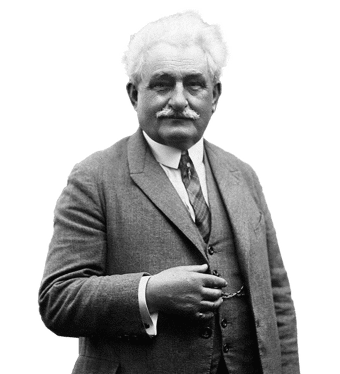“What do I appreciate the most about Martinů’s music? His comprehensible musical language. It has fascinated me how well he could react to different impulses, how he breathed them in and recast them in the form of his own musical language. And despite his cosmopolitanism, there remains the Czech note present in his compositions.”
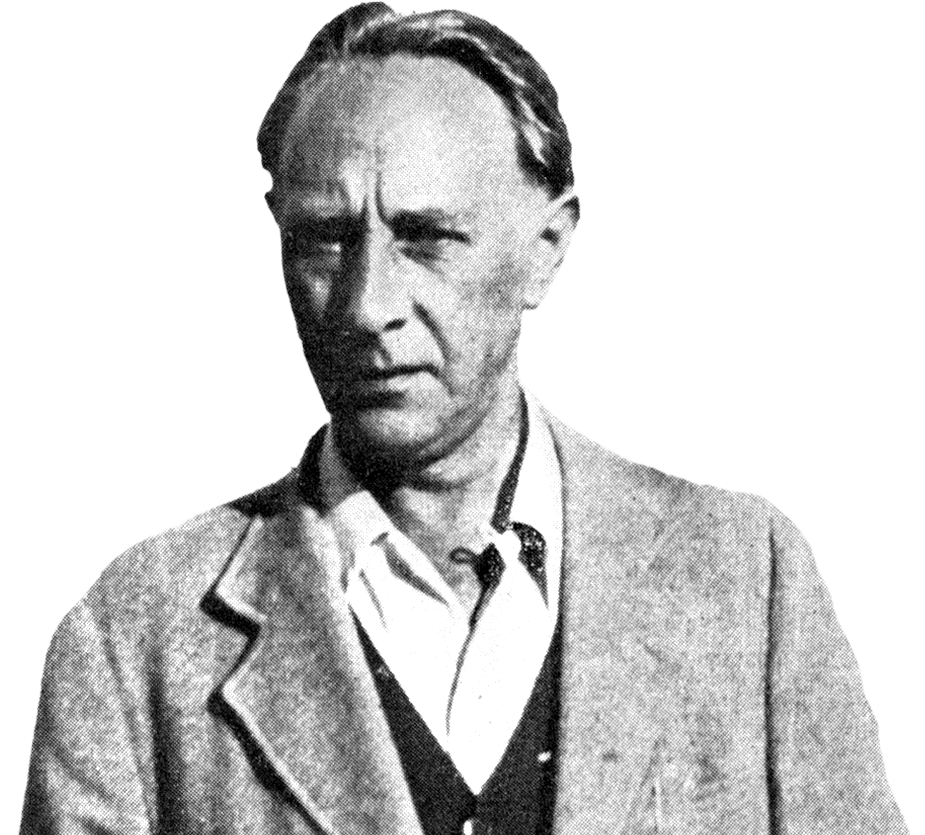
The total number of performances of compositions by
Bohuslav Martinů: 775
The three most performed works
| 127 times | Symphony No. 6 |
| 115 times | Symphony No. 4 |
| 45 times | Serenade No. 2 for two violins and viola |
The statistical data compiled, published and shared by Alexander Goldscheider © Citing from his book Jiří Bělohlávek: A Life in Pictures. [ 2 ]
Critics saw in Bělohlávek the best performer of Martinů’s music ever. And even though such judgements cannot be absolute, Bělohlávek did undeniably a great job to make the work of the native of Polička popular in this country and around the world.
Bělohlávek got to know Martinů’s music already as a child and he developed his interest in the composer’s work during his studies at the conservatoire and later at the Academy for Performing Arts.
My love for Bohuslav Martinů is a widely known fact. I was touched by Bohuslav Martinů as a young boy when I participated in the premiere of The Opening of the Springs as a member of the Prague Philharmonic Children’s Choir. (…) This was a formative experience for me that heralded my later interest. It continued during my studies at the conservatoire when I studied his sonatas as a cellist. From this evolved my interest in the score of larger works, leading all the way to his symphonies.
It is therefore not surprising that Martinů’s works appeared in Bělohlávek’s concerts as way back as in the 1970s and he presented his works on a regular basis ever since in his concerts, as he mentioned when remembering a performance of Symphony No.4 with the German WDR Sinfonieorchester Köln in 1979. [ 4 ]
The Czech Philharmonic opened the concert (on 13 and 14 December 1985 at the Rudolfinum) with Martinů’s Symphony No.1 in which the orchestra under Bělohlávek played fully engaged from the very first barp. It was another piece of evidence that the conductor can move with utmost confidence in the area of Martinů’s symphonism. The main features of his interpretation – valid for Bělohlávek’s type of interpretation in general - include his perfect preparedness, precisely elaborated understanding of the score, and a certain moderateness and matter-of-factness. Bělohlávek’s interpretation of Martinů’s language, in which the ideal of moderation, clarity and balance is intrinsic, was especially convincing due to this.
Thanks to Bělohlávek, the work of Bohuslav Martinů found its way into the repertoire of all the orchestras where he was a permanent conductor or the chief conductor. Bělohlávek promoted Martinů both at home and with orchestras abroad. For five decades he kept convincing everyone of the high quality of Martinů’s music and he included his compositions on the programme of his concerts. However successful he was with it, he could not help feeling sorry about a peculiar phenomenon that accompanied his endeavour: “When I manage to convince an international orchestra to play one of Martinů’s symphonies, everyone is enthusiastic about it after the concert and tells me they want to know more of his work. However, when another concert starts to be negotiated after a year’s time, it seems as if the previous experience did not exist.” [ 6 ]
Bělohlávek hoped to make a break-through during the Festival of 20th Century Music that is organized every year by the BBC Radio in London. In 1998, Martinů’s musical legacy was the focus of the festival bringing an exceptionally rich programme of concerts, lectures, panel discussions, exhibitions and masterclasses given by Ivan Štraus and Jiří Bělohlávek. Moreover, Bělohlávek prepared a representative selection of Martinů’s work and performed it in three concerts with the BBC Symphony Orchestra including Martinů’s Memorial to Lidice, Field Mass, Cello Concerto No.1with Raphael Wallfish, Symphony No.6, Double-Concerto for two orchestras, piano and timpani, the Nipponari Songswith Marta Beňačková, Symphony No.4 and other works. Two concert performances of the opera The Greek Passion were the festival’s highlights. However, no mass inclusion of Martinů’s works into the repertoires of English orchestras ensued and one could not speak of a revolution. Rather, all these activities contributed to an evolution of gradual inclusion of Martinů’s works in concerts and the hearts of musical audiences.
The indirect road of Martinů’s works onto concert stages can be partly explained by how complicated they are to study and perform, as Bělohlávek described in an interview for Martinůrevue in 2010:
B. Martinů’s music always offers a challenge – its structure is not always easy to grasp right away, the score does not preclude the possibility of misunderstanding a phrase, it is always necessary to carefully study the form. It doesn’t reveal itself easily. Of course, it holds the magic of adventure, and furthermore, an utterly sweet reward if we succeed in accurately understanding and deciphering Martinů’s cipher and making it sing.
…I make use of my guest conducting with European, American or Japanese orchestras to promote the works of Bohuslav Martinů on a regular basis; I see it as my privilege and obligation to introduce and reintroduce his works ceaselessly.
Bělohlávek’s intensive relationship with the work of Martinů is documented by the richness of his discography. Beginning in the 1970s and especially thanks to the Supraphon label, many recordings were made including juvenilia and almost unknown works. Bělohlávek together with the Prague Symphony Orchestra or the Czech Philharmonic were entrusted with many of these recordings.
Already in 1976, Bělohlávek recorded the oratorio Epos of Gilgamesh with the Prague Symphony Orchestra (reissued in 2007) and in 1986 they recorded The Miracles of Mary in collaboration with the Czechoslovak Radio Choir. The recording was released in 1987 on the Supraphon label and was reissued in 2002.
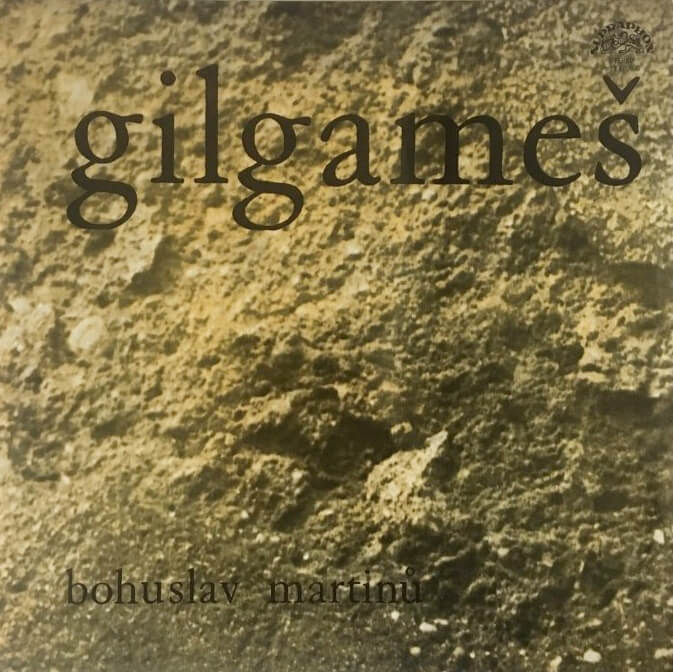
“Gilgamesh is a great poem about a deep friendship of two heroes, and Martinů understood it in this way (as testified by Šafránek). The recording, conducted by Bělohlávek, emphasizes these aspects of the exquisite work. In the orchestra, in the solo performances, and a little less so in the choral parts (with J. Veselka as chorus master), their role in the epic and dramatically effective whole is very specific.”
In 1981, on the occasion of the ninetieth anniversary of Martinů’s birth, Panton prepared a representative selection of the composer’s works. The five-LP set was entitled Bohuslav Martinů: Life - Work - Thoughts and was complemented by a biographical publication and a recording of Martinů’s speech of 1946. The set consisted of Kytice (Bouquet), Double-Concerto for two orchestras, piano and timpani, and String Quartet No.7. Various conductors, soloists and orchestras were represented on individual recordings. The third LP contained Symphony No.4 recorded in 1979 by Bělohlávek and the Prague Symphony Orchestra.
In 1986, Bělohlávek and the Prague Symphony Orchestra recorded Martinů’s Czech Rhapsody, a composition whereby the twenty-eight-year-old Martinů first drew public attention to his work in 1918. The same performers followed by recording his ballet music Who is the Most Powerful in the World? in 1988, and The Butterfly that Stamped in 1990. Another album was made in the same year presenting more Martinů: Spectre’s Bride, Magic Nights and Nipponari. And in 1993 two more ballets on one disc were added to Bělohlávek’s discography: Échec au roi, a jazz ballet in one act, and The Revolt, a ballet comedy in one act. Everything on the Supraphon label.
Jiří Bělohlávek is certainly to be credited for the success of this performance and how convincing this solemn and at the same time sincere musical setting of the composer’s own text was. Already some time ago, the conductor had intended to present The Czech Rhapsody earlier within a regular season of the Prague Symphony Orchestra, which unfortunately had not happened.
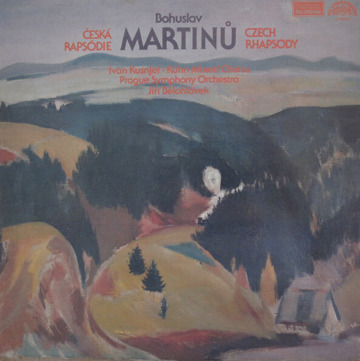
There are advantages in performing works with no previous tradition of interpretation, as there is no possibility of comparison. There are, however, also disadvantages, as there is no example a performer could follow. One must choose appropriate tempos, the right dynamic proportions and, in each part, to emphasize the character that the author had likely in mind. Jiří Bělohlávek succeeded in doing all this, I believe. The recording shows the features of the work mentioned above, i.e. his sound inspired by impressionism and influenced substantially by Martinů’s maturing signature style known from his later works. (…) It is a satisfactory and accessible album, moreover with a certain documentary value, since it maps out an unknown period of Martinů’s creative life.
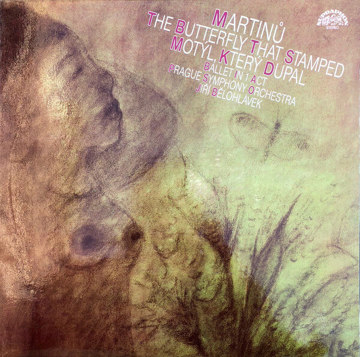
In the same years, Bělohlávek recorded albums offering Martinů’s music also with the Czech Philharmonic: The Parables, Les Estampes, Overture and La Rhapsodie (Supraphon 1987); and Concerto Grosso, Tre Ricercari and Sinfonia Concertante for Two Orchestras (Supraphon 1990). A live recording of a concert from the Prague Spring Festival was released in 1991 in which Rudolf Firkušný and the Czech Philharmonic under Jiří Bělohlávek played Martinů’s Piano Concerto No.2.
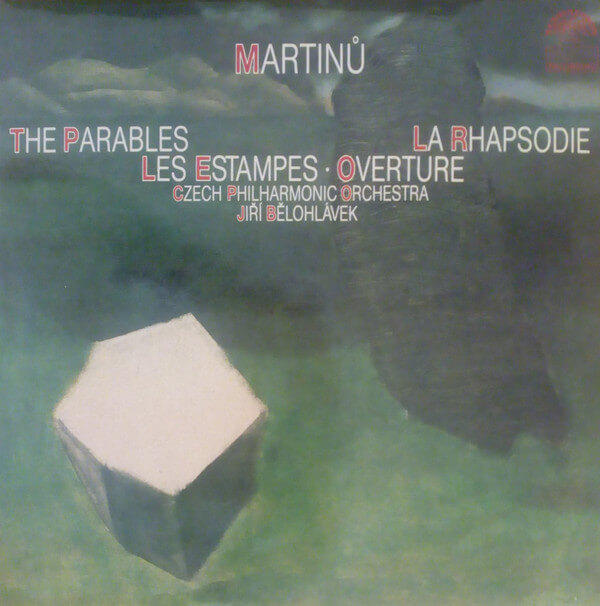
“Jiří Bělohlávek led the Czech Philharmonic to a performance perfect both in its whole and in its individual details, balance and articulation of sound. In line with his previous performances, of Ravel for example, Bělohlávek does not let the impressionist brokenness and softness of the score lead him to indistinct sound mist. While refined, his orchestra sound is always full-blooded.”
Collaboration with the English Chandos label resulted in the following recordings with the Czech Philharmonic in the early 1990s: Martinů’s Symphony No.6 appeared on LP in 1990 (the album contained also Janáček’s Sinfonietta and Suk’s Fantastic Scherzo); in 1990 an LP with Symphony No.1 and Double Concerto; and the following year it was the Cello Concertos No.1 and No.2 and Concertino, all recorded together with Raphael Wallfish. In 1993 there appeared a CD with The Memorial to Lidice, Field Mass and Symphony No.4.
His interpretation does not lack thrilling dynamics. He confronts Martinů’s liking of simple consonance with hard dissonant sequences of seconds and thick harmony. He enjoys shifts in emotion given by abruptly changing tonality. (…) The conductor emphasizes the timeless character of the Field Mass and the power of resistance, courage and perseverance. He shifts Martinů’s cantata onto a plain of manifest in the form of an eternal and generally valid exclamation mark.
In 2003, Jiří Bělohlávek and the Czech Philharmonic were asked to record all six symphonies of Bohuslav Martinů, which they gladly accepted. They recorded all the symphonies, but in the end only Symphonies No.3-6 were released on two CDs. Bělohlávek objected to the release of the first two symphonies, due to artistic reasons. [ 20 ]
A CD containing Symphonies No. 3 and 4 appeared in shops in 2003. Sadly, the whole project was suspended for some time and the Fifth and Sixth Symphony were recorded and released only six years later, in 2009. This recording was nominated for the 2010 Grammy Awards.
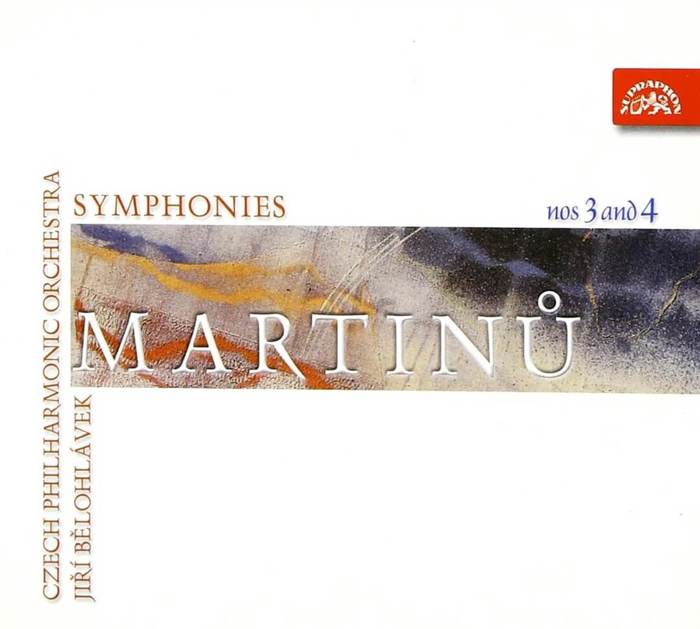
“Time and time again, I experience the beneficial influence Jiří Bělohlávek has on the Czech Philharmonic. The orchestra is concentrated, perfectly prepared and does what every ensemble should – fulfils the conductor’s vision perfectly. The orchestra’s performance is in both compositions fabulous (perhaps in the Third Symphony a tiny bit more still) and Bělohlávek again raised the interpretation level of difficult scores higher.”
The following recordings of Martinů’s music were made in the time when Bělohlávek was the chief conductor of the BBC Symphony Orchestra: In 1996 there was a live recording of The Epic of Gilgamesh with a Czech and Slovak cast, namely Eva Urbanová, Ľudovít Ludha, Dalibor Tolaš and Peter Mikuláš. Three years later there was another live recording, this time from the BBC Proms. The CD included Brahms’ Symphony No. 2 and Martinů’s three-movement suite The Frescoes of Piero della Francesca.
The highlights of Bělohlávek’s collaboration with the BBC Symphony Orchestra were the recordings of all six of Martinů’s symphonies released on the Onyx label in 2011. The extraordinary quality of the CD set called Martinů: The 6 Symphonies was confirmed by several nominations and awards. It was even short-listed for the Grammy Award in February 2012, and in September 2012 it received the Gramophone Award for the best orchestral recording.
In brief, Belohlavek has the full measure of each of these works. He summons up the orchestral magic of Martinu's highly specialized sound world: what the critic Micheal Steinberg called a ‚breathtaking range of coruscations, phosphoresences, and lambent half-lights.‘ He's able to somehow balance the neo-classicism of the first two symphonies with the trance-like, intuitive structures that characterize the last four. Best of all, he is able to tease a distinctly Bohemian sound out of his British musicians.

Bělohlávek’s last recording of a Martinů symphony was made in January 2016 together with the Czech Philharmonic – it was Symphony No.1. Two years later it appeared on a CD together with Martinů’s opera What Men Live By.
An important chapter in Bělohlávek’s Martinů repertoire comprises the composer’s operas. In his career, Bělohlávek staged ten productions of his operas, four of which were concert performances. His first experience was already in December 1982, when he conducted The Miracles of Mary for the first time. The opera was also recorded in a studio and released by Supraphon in 1985.
Bělohlávek’s debut in Czech opera houses was in 1984 when he conducted a State Opera production of Martinů’s Greek Passion. The role of Katerina was performed by Naděžda Kniplová, that of Manolios by Miroslav Švejda, Fotis, the merciful priest, was sung by Jaroslav Souček, and the imperious priest Grigoris by Dalibor Jedlička.
The operas are extremely lovely, immensely interesting. Take Juliette for example, it is such a gem of the opera literature, and it is not appreciated enough in the Czech Republic. It is rarely performed. I had two productions abroad – in Paris and in Geneva with a fabulous stage designer. It is a witty, interesting story and the music is also interesting.
Six years later, he conducted The Miracles of Mary at the Janáček Theatre in Brno. In January 1998, he prepared a concert performance of The Greek Passion for the Martinů: Out of Exile Festival. In 2006, Bělohlávek collaborated on two opera productions. In February, it was Juliette ou la Clé des songes at Opéra Bastille in Paris. For this production, the original French text written by Martinů, reconstructed by the French musicologist Harry Halbreich, was used for the first time. In April, the premiere of The Greek Passion took place at the National Theatre in Prague.
In March 2009, Bělohlávek introduced a concert performance of Martinů’s Juliette also to the English audience, with the BBC Symphony Orchestra at the Barbican. The role of Juliette was sung by Magdalena Kožená and that of Michel by William Burden. The performance was part of the “Martinů: Revisited” project, which was to commemorate the fiftieth anniversary of the composer’s death and which included and coordinated many festivals, concerts, exhibitions, theatre productions and other events all over the world. The extraordinary impression the concert made is testified by the fact that in 2010 the BBC SO received for it the Royal Philharmonic Society Music Award in the opera and musical theatre category.
In the autumn of 2009, Bělohlávek conducted The Miracles of Mary at the National Theatre in Prague.
The staging of The Miracles of Mary at the National Theatre with Jiří Bělohlávek as the guest conductor is quite unique. An extraordinary music theatre was created, and the audience could sense it well – the premiere on Thursday was a success. (…) The conductor Jiří Bělohlávek positioned the choirs – in addition to the Opera Choir there were also the Prague Philharmonic Choir and the Prague Philharmonic Children’s Choir – on the side balconies. This enables monumental sound. Despite such complicated conditions, their ensemble was perfect, which is something remarkable about the music in this production. The respect the musicians feel for the conductor causes the orchestra to play as if transformed. Martinů’s music is given full intensity, colourfulness, and richness.
In 2012 Bělohlávek took part in a production of Juliette at the Grand Théâtre de Genève. It starred Nataliya Kovalova as Juliette and Steve Davislim as Michel.
Bělohlávek said goodbye to Martinů’s stage works when in December 2014 he and the Czech Philharmonic gave a concert performance of Bohuslav Martinů’s one-act opera What Men Live By, which was based on Leo Tolstoy’s short story. The production was nominated for The International Opera Award. The concert performance was recorded, and the opera was released in its world premiere on the Supraphon label in 2018.
Jiří Bělohlávek approached this forty-minute-long pastoral opera as a deep, thoughtful, beautiful and almost joyful work. (…) He invited the chamber choir Martinů Voices (led by Lukáš Vasilek) and several soloists including the baritone Ivan Kusnjer, who took up the leading role, to cooperate with him. If I may return four years back to my personal memories, I perceived this performance as honest and stylistically perfect. Now on the CD, it sounds the same.
In 1999, Bělohlávek received a Gold Record from Supraphon for his recordings of works of Bohuslav Martinů and, in April 2006 at the National Theatre, he received a medal from the Bohuslav Martinů Foundation for his lifelong propagation of the composer’s work.
Main sources
- 1.
VEBER, Petr: Martinů je srozumitelný. iHned.cz 2006, 18. 4. Available online
- 2.
GOLDSCHEIDER, Alexander: Jiří Bělohlávek: A Life in Pictures. 2017. Kniha na více než 600 fotografiích a 160 stránkách dokumentuje celoživotní dráhu Jiřího Bělohlávka s použitím tisíců unikátních statistických údajů. Available online
- 3.
Telefonotéka. Český rozhlas Vltava 2016, 14. 1. Available online
- 4.
BŘEZINA, Aleš: Understanding Mr. Martinů’s Cipher and Making It SIng. Martinurevue 2010, č. 1, s. 8.
- 5.
ŠTÍLEC, Jiří ml.: Česká filharmonie s premiérou. Hudební rozhledy 1985, č. 4, s. 150
- 6.
VEBER, Petr: Martinů je srozumitelný. iHned.cz 2006, 18. 4. Available online
- 7.
BŘEZINA, Aleš: Understanding Mr. Martinů’s Cipher and Making It SIng. Martinurevue 2010, č. 1, s. 8.
- 8.
JAROLÍMKOVÁ, Hana; ZAPLETAL, Petar: O novém CD projektu z díla Bohuslava Martinů s dirigentem Jiřím Bělohlávkem. Hudební rozhledy 2003, č. 9, s. 43
- 9.
psk: Recenze gramofonových desek. Hudební rozhledy 1977, č. 2, s. 91
- 10.
wd.: Martinů Hry o Marii. Tvorba 1986, č. 20, 21. 5., s. 19
- 11.
psk: Recenze gramofonových desek. Hudební rozhledy 1977, č. 2, s. 91
- 12.
wd.: Martinů Hry o Marii. Tvorba 1986, č. 20, 21. 5., s. 19
- 13.
VEBER, Peter: Recenze gramofonových desek. Bohuslav Martinů: České rapsodie. Hudební rozhledy 1987, č. 4, s. 192
- 14.
RYBÁŘ, Jaroslav: O motýlu, který dupal. Gramorevue 27, 1991, č. 3, s. 6
- 15.
SMOLKA, Jaroslav: Symfonický Martinů slavný i neznámý. Gramorevue 27, 1991, č. 3, s. 10
- 16.
MATZNER, Antonín: Martinů známý i neznámý. Gramorevue 27, 1991, č. 8, s. 7.
- 17.
SMOLKA, Jaroslav: Symfonický Martinů slavný i neznámý. Gramorevue 27, 1991, č. 3, s. 10
- 18.
MATZNER, Antonín: Martinů známý i neznámý. Gramorevue 27, 1991, č. 8, s. 7.
- 19.
MAREŠOVÁ, Veronika: Polní mše Bohuslava Martinů v nahrávkách. In: Bohuslav Martinů český a světový. Ostrava 2000, s. 135–136.
- 20.
VÍTEK, Bohuslav: Odkaz Jiřího Bělohlávka na zvukových nosičích. Harmonie 2017, č. 10, s. 24.
- 21.
STEHLÍK Luboš: Bohuslav Martinů. Symfonie č. 3 a č. 4. Harmonie 2004, č. 1, s.
- 22.
VÍTEK, Bohuslav: Bohuslav Martinů – Symfonie č. 5 a 6. Harmonie 2010, 12. 6. Available online
- 23.
STEHLÍK Luboš: Bohuslav Martinů. Symfonie č. 3 a č. 4. Harmonie 2004, č. 1, s.
- 24.
VÍTEK, Bohuslav: Bohuslav Martinů – Symfonie č. 5 a 6. Harmonie 2010, 12. 6. Available online
- 25.
WESTLER, Max: Bohuslav Martinu. Complete Symphonies. Enjoythemusic.com 2011. Available online
- 26.
Telefonotéka. Český rozhlas Vltava 2016, 14. 1. Available online
- 27.
VEBER, Petr: Hry o Marii vynášejí soubor Národního divadla na operní nebe. iHned 2009, 2. 11. Available online
- 28.
JÄGER, Daniel: Album dne. Bohuslav Martinů: Čím lidé žijí. Český rozhlas Vltava 2018, 26. 10. Available online
VEBER, Petr: Martinů je srozumitelný. iHned.cz 2006, 18. 4. Available online
GOLDSCHEIDER, Alexander: Jiří Bělohlávek: A Life in Pictures. 2017. Kniha na více než 600 fotografiích a 160 stránkách dokumentuje celoživotní dráhu Jiřího Bělohlávka s použitím tisíců unikátních statistických údajů. Available online
Telefonotéka. Český rozhlas Vltava 2016, 14. 1. Available online
BŘEZINA, Aleš: Understanding Mr. Martinů’s Cipher and Making It SIng. Martinurevue 2010, č. 1, s. 8.
ŠTÍLEC, Jiří ml.: Česká filharmonie s premiérou. Hudební rozhledy 1985, č. 4, s. 150
VEBER, Petr: Martinů je srozumitelný. iHned.cz 2006, 18. 4. Available online
BŘEZINA, Aleš: Understanding Mr. Martinů’s Cipher and Making It SIng. Martinurevue 2010, č. 1, s. 8.
JAROLÍMKOVÁ, Hana; ZAPLETAL, Petar: O novém CD projektu z díla Bohuslava Martinů s dirigentem Jiřím Bělohlávkem. Hudební rozhledy 2003, č. 9, s. 43
psk: Recenze gramofonových desek. Hudební rozhledy 1977, č. 2, s. 91
wd.: Martinů Hry o Marii. Tvorba 1986, č. 20, 21. 5., s. 19
psk: Recenze gramofonových desek. Hudební rozhledy 1977, č. 2, s. 91
wd.: Martinů Hry o Marii. Tvorba 1986, č. 20, 21. 5., s. 19
VEBER, Peter: Recenze gramofonových desek. Bohuslav Martinů: České rapsodie. Hudební rozhledy 1987, č. 4, s. 192
RYBÁŘ, Jaroslav: O motýlu, který dupal. Gramorevue 27, 1991, č. 3, s. 6
SMOLKA, Jaroslav: Symfonický Martinů slavný i neznámý. Gramorevue 27, 1991, č. 3, s. 10
MATZNER, Antonín: Martinů známý i neznámý. Gramorevue 27, 1991, č. 8, s. 7.
SMOLKA, Jaroslav: Symfonický Martinů slavný i neznámý. Gramorevue 27, 1991, č. 3, s. 10
MATZNER, Antonín: Martinů známý i neznámý. Gramorevue 27, 1991, č. 8, s. 7.
MAREŠOVÁ, Veronika: Polní mše Bohuslava Martinů v nahrávkách. In: Bohuslav Martinů český a světový. Ostrava 2000, s. 135–136.
VÍTEK, Bohuslav: Odkaz Jiřího Bělohlávka na zvukových nosičích. Harmonie 2017, č. 10, s. 24.
STEHLÍK Luboš: Bohuslav Martinů. Symfonie č. 3 a č. 4. Harmonie 2004, č. 1, s.
VÍTEK, Bohuslav: Bohuslav Martinů – Symfonie č. 5 a 6. Harmonie 2010, 12. 6. Available online
STEHLÍK Luboš: Bohuslav Martinů. Symfonie č. 3 a č. 4. Harmonie 2004, č. 1, s.
VÍTEK, Bohuslav: Bohuslav Martinů – Symfonie č. 5 a 6. Harmonie 2010, 12. 6. Available online
WESTLER, Max: Bohuslav Martinu. Complete Symphonies. Enjoythemusic.com 2011. Available online
Telefonotéka. Český rozhlas Vltava 2016, 14. 1. Available online
VEBER, Petr: Hry o Marii vynášejí soubor Národního divadla na operní nebe. iHned 2009, 2. 11. Available online
JÄGER, Daniel: Album dne. Bohuslav Martinů: Čím lidé žijí. Český rozhlas Vltava 2018, 26. 10. Available online





























